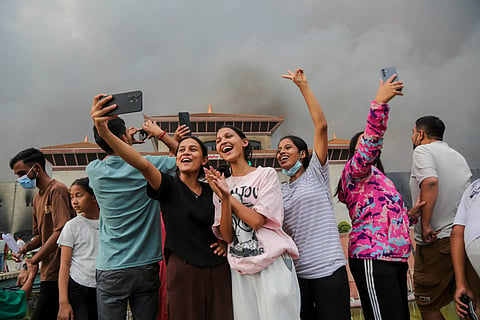A social media timeline of Nepal’s Gen Z uprising
THE CHARRED REMAINS of police stations, super markets, minister’s homes, the federal parliament, the Supreme Court and much else stand as stark reminders of five of the most dramatic and consequential days in Nepal’s history. Between 8 and 12 September, at least 74 people were killed and hundreds more injured as protests and public outrage swept across the country. The killing of 19 demonstrators by security forces on Monday, 8 September, ignited a nationwide uprising that toppled not only the prime minister, K P Sharma Oli of the Communist Party of Nepal (Unified Marxist–Leninist), but also the political establishment he represented.
In the chaos, the main symbols and seats of every branch of the government – the federal parliament, Singha Durbar and the Supreme Court – were set ablaze. Even the media, often considered the “fourth estate,” was not spared: the headquarters of Nepal’s largest media house, Kantipur Media, also went up in flames. By Friday night, Nepal had a new leader: Sushila Karki, the country’s first female prime minister, sworn in as the head of an interim administration tasked with steering Nepal to a fresh election.

